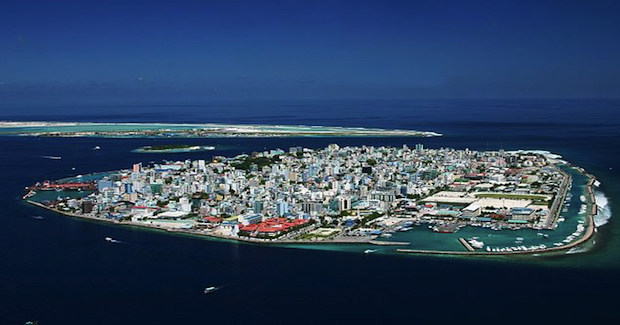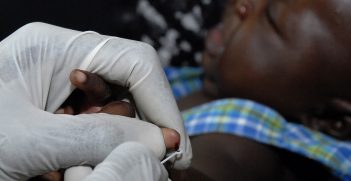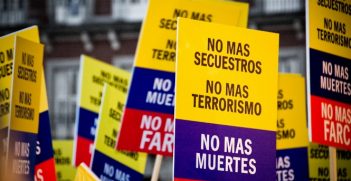Sustainable Futures for Small Island States

Small island developing states—from St Kitts and Nevis to Samoa—face a unique set of challenges to their sustainable development including extremely limited resources, high vulnerability to climate change and acute susceptibility to global economic fluctuations. Two years after the drafting of the 2030 Agenda for Sustainable Development, what steps do these countries need to take to ensure they achieve stronger futures, both individually and as a group?
The Third International Conference on Small Island Developing States took place in Samoa two years ago. It was unique in that it addressed specific areas of concern for these small island states. Moreover, the conference occurred at the same time as the broader global community declared a new development paradigm in the form of the 2030 Agenda for Sustainable Development and the Sustainable Development Goals.
This conference produced the Small Islands Development States Accelerated Modalities of Action (SAMOA) Pathway, which represents the blueprint for the sustainable development of Small Island Developing States (SIDS). But what did the SIDS Conference and the 2030 Agenda for Sustainable Development truly mean for SIDS?
Special cases
SIDS are a group of countries deemed special cases by the international community. This is because of their specific vulnerabilities and the constraints they face pursuing sustainable development. The challenges unique to SIDS include issues such as their extreme vulnerability to climate change and sea level rise; high susceptibility to global economic fluctuations; and having limited land, resources and populations.
To adequately address these challenges and to achieve the outcomes of the three SIDS conferences, countries will need to be innovative, adopt strategies that cater to their uniqueness and employ niche concepts for their own sustainable development.
Innovation
The challenges that SIDS face are only insurmountable when islanders are not sufficiently empowered to tackle them fully and creatively. In the past, innovation was often impeded by obstacles that islanders encountered in the larger global framework. There are difficulties adapting broad, universal models to their rather different island reality. At times, these were seemingly the only options available to SIDS and served to frustrate progress.
Innovative thinking is required by islanders, particularly that which occurs outside of the box of international development strategies. These islanders should be focusing on island development strategies. Some of the past innovative ideas remain applicable and credible, and they need not reinvent the wheel.
Innovation and fresh ideas fuel the economies of great powers. Once, all of today’s large economies were agrarian societies that harnessed innovation to advance. This is fundamental to island prosperity as well.
Critical Factors for Innovation
The Private Sector – The reliance on governments to fuel economies should be reconsidered. While the role of government is very important, all governments, including island governments, can benefit from greater investment in the private sector. This is the sector that will help stimulate innovation.
Education and training – Education and training of islanders is vital. It is through education that the spark of innovation will be kindled. Investing in innovation and in the academic sector at the local level can produce enormous dividends.
SIDS-SIDS partnerships – Despite the idea of SIDS-SIDS partnerships floating around for many years, it has not been fully explored by many islands. Partnerships in innovation among and between islands can help to produce more island-centric solutions to their sustainable development challenges.
These are not novel concepts, but they require more committed effort.
There is also a need for individuals to produce technology and new ideas that focus on the environmental vulnerabilities of islands as well. Climate change and natural disasters are having catastrophic impacts on islands, and investments and partnerships in innovative thinking to build resilience is one strategy to reverse their negative effects.
Role of international community
The role of the international community also has to be re-evaluated. One shortcoming of the current aid regime is the very nature of the assistance. It is a process which prioritises the political expediency of the donor. This means that there could have been occasions where development assistance may not have been forthcoming because of political considerations.
This hurts the global implementation process, creates division within the SIDS and causes some island nations to be completely isolated. It is accepted that countries will focus on their neighbour’s interests but a true global partnership creates the conditions for system change. The pursuit of thriving business communities and innovative intellectual hubs will allow SIDS to become self-sufficient.
The island private sector should be developed to become more than just distributors of goods and services from the outside world. Similarly, academic partnerships allow for all perspectives to be considered. Island academics are valuable resources, and should not have to migrate for their theories to be globally accepted and implemented.
These are areas where the role of the international community can be strengthened.
Whither go the islands in the 2030 Agenda for Sustainable Development? SIDS definitely benefit from international cooperation, but they will go as far as their own innovative thinking will take them; they will go as far as their own private sector and business community will take them; and they will go as far as island partnerships will take them.
Hopefully, when the next island conference occurs, it can be geared toward celebrating the success stories of island innovation; and it will consider how island innovation can continue to help the international community to advance, as true partners in sustainable development.
Carlisle Richardson is a former ambassador of St Kitts and Nevis to the United Nations and a former economic affairs officer of the United Nations. He was one of the organisers of the United Nations Conference on Sustainable Development (Rio+20) as well as the Third International Conference on Small Island Developing States.
This article is drawn by a talk given at AIIA Victoria on 8 September 2016. The entire lecture may be viewed here.
This article is published under a Creative Commons Licence and may be republished with attribution





